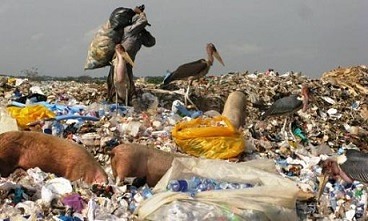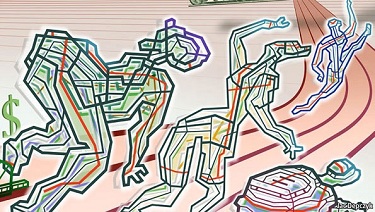Food Waste and Hunger Side by Side - Scandalous!

Pigs, marabou storks and human scavengers compete for food waste
at Dandora dump on the outskirts of Nairobi. (Photo: AlertNet)
"Waste not, want not." - How does the human race measure up to this wise saying when it comes to one of the essentials of life, food?
Not well, it seems. Research by the Institution of Mechanical Engineers, reported in the Guardian, found that between 30% and 50% of all the food produced in the world, equivalent to 1.2 to 2bn tonnes, never makes it to a plate and ends up as waste every year. Reasons for this colossal waste are given:
“Unnecessarily strict sell-by dates, buy-one-get-one free and western consumer demand for cosmetically perfect food, along with poor engineering and agricultural practices, inadequate infrastructure and poor storage facilities…In the UK as much as 30% of vegetable crops are not harvested due to their failure to meet retailers' exacting standards on physical appearance, while up to half of the food that is bought in Europe and the US is thrown away by consumers.”
A report by the Food and Agriculture Organization (FAO) of the United Nations estimates that per capita food waste in the US and northern Europe is 95-115 kg/year while in sub Saharan Africa and south/south East Asia it is 6-11 kg/year. What a scandalous waste of resources! Lest we forget, the energy needed to produce and distribute this staggering amount of wasted food comes overwhelmingly from burning fossil fuels, with greenhouse gas emissions exacerbating global warming.

































